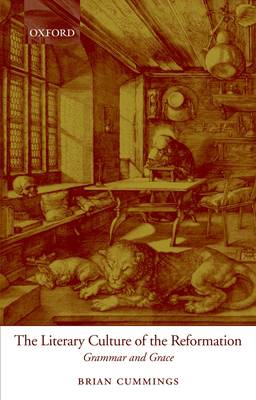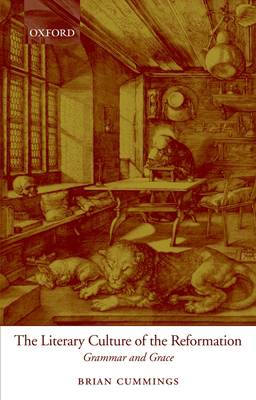
- Afhalen na 1 uur in een winkel met voorraad
- Gratis thuislevering in België vanaf € 30
- Ruim aanbod met 7 miljoen producten
- Afhalen na 1 uur in een winkel met voorraad
- Gratis thuislevering in België vanaf € 30
- Ruim aanbod met 7 miljoen producten
Zoeken
€ 87,45
+ 174 punten
Uitvoering
Omschrijving
Brian Cummings examines the place of literature in the Reformation, considering both how arguments about biblical meaning and literary interpretation influenced the new theology, and how developments in theology in turn influenced literary practices. Part One focuses on Northern Europe, reconsidering the relationship between Renaissance humanism (especially Erasmus) and religious ideas (especially Luther). Parts Two and Three examine Tudor and early Stuart England. Part Two describes the rise of vernacular theology and protestant culture in relation to fundamental changes in the understanding of the English language. Part Three studies English religious poetry (including Donne, Herbert, and in an Epilogue, Milton) in the wake of these changes. Bringing together genres and styles of writing which are normally kept apart (poems, sermons, treatises, commentaries), Cummings offers a major re-evaluation of the literary production of this intensely verbal and controversial period.
Specificaties
Betrokkenen
- Auteur(s):
- Uitgeverij:
Inhoud
- Aantal bladzijden:
- 490
- Taal:
- Engels
Eigenschappen
- Productcode (EAN):
- 9780199226337
- Verschijningsdatum:
- 30/08/2007
- Uitvoering:
- Paperback
- Formaat:
- Trade paperback (VS)
- Afmetingen:
- 140 mm x 216 mm
- Gewicht:
- 635 g

Alleen bij Standaard Boekhandel
+ 174 punten op je klantenkaart van Standaard Boekhandel
Beoordelingen
We publiceren alleen reviews die voldoen aan de voorwaarden voor reviews. Bekijk onze voorwaarden voor reviews.











